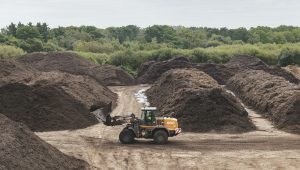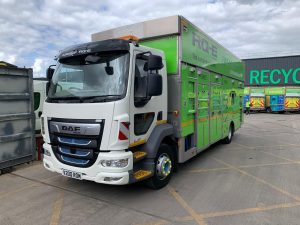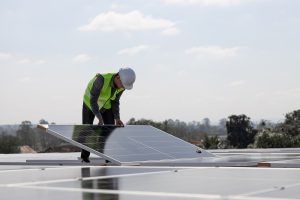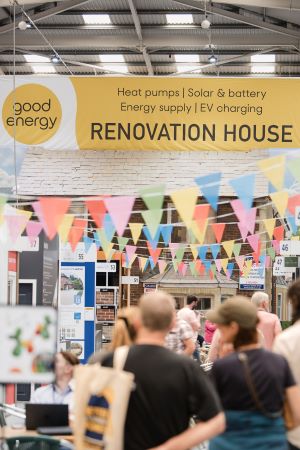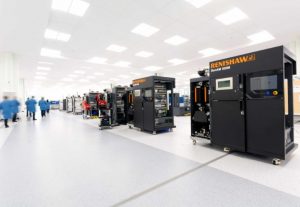Clean tech firm wins government grant for pioneering project
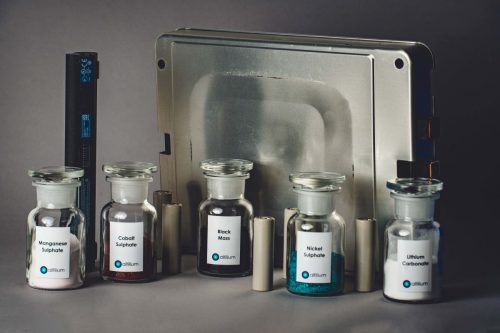
A Devon based clean technology group has secured backing from the UK government to begin rapid prototyping of lithium-ion EV battery cells using recycled cathode active materials (CAM).
The innovative project, the first of its kind in the UK, has received grant funding of £639,797 from Innovate UK’s Faraday Battery Challenge.
Production of the cells will take place at the UK Battery Industrialisation Centre (UKBIC), the UK’s national battery manufacturing scale-up facility, using CAM produced at Altilium’s UK pilot facility.
Altilium is the only company in the UK recycling and upcycling old EV batteries to produce high nickel CAM for direct reuse in new EV batteries.
Using its proprietary EcoCathode process, Altilium recycles over 95% of the cathode metals, including lithium, from old EV batteries.
The process results in a 60% reduction in carbon emissions and 20% lower costs compared to virgin materials.
This new initiative marks a significant step towards the development of a circular economy for the battery industry and the decarbonisation of battery cells.
As well as addressing concerns over battery waste disposal, it will enable automotive OEMs to meet sustainability goals and minimum recycled content regulations.
The project will involve a full pouch cell run at the UKBIC facility, as well as analysis of the quality and performance of the cells, and benchmarking against UKBIC’s baselines cell.
By demonstrating at-scale manufacturing of battery cells using recycled CAM, the project will advance commercialisation of Altilium’s technology, paving the way for supply deals with OEMs and battery manufacturers and de-risking investment in further scale-up, including construction of the UK’s largest planned commercial plant for EV battery recycling and CAM production.
Successful completion of the project will also have wider benefits for the UK economy and the environment.
By developing a domestic, sustainable source of battery raw materials, Altilium is helping to meet the growing demands of new green industries, such as EV manufacturing, while reducing the UK’s reliance on imported materials and supporting the transition to net zero.
Alitlium COO Dr Christian Marston said: “We are excited to lead the way in sustainable battery production through this collaboration with UKBIC.
“This new project will advance commercialisation of Altilium’s technology, demonstrating our EcoCathode recycling process at our new ACT 2 facility at a suitable scale to OEMs, battery manufacturers and investors, and de[1]risking investment in further scale-up.”
EV batteries typically account for up to 60% of the embedded greenhouse gases in EV production.
On average, mining and refining battery raw materials accounts for about a quarter of these emissions.
Recovering these materials from end-of-life batteries and Gigafactory scrap can therefore play a critical role in the decarbonisation of EV production.
CAM, which is made up of lithium and other critical metals, is the most expensive component in an EV battery, as well as the most carbon-intensive.
In a modern EV, the material contents of the cathode make up about 50% of the battery cell cost and 8-10% of the total cost of an EV. Processing battery waste to CAM therefore captures more of the value of the critical materials.
Altilium’s planned Teesside recycling plant will have capacity to produce 30,000 tonnes of CAM a year – enough to meet nearly 20% of expected UK demand by 2030.
Altilium was awarded the funding through the £610m Faraday Battery Challenge (FBC), which is delivering a research and innovation programme that covers “Lab to Factory” development, cutting-edge research, national scale-up infrastructure, and skills and training.
The FBC announced £1.5m of funding for leading edge UK battery developers today at Battery Cells and Systems Expo, at the National Exhibition Centre (NEC) in Birmingham.

